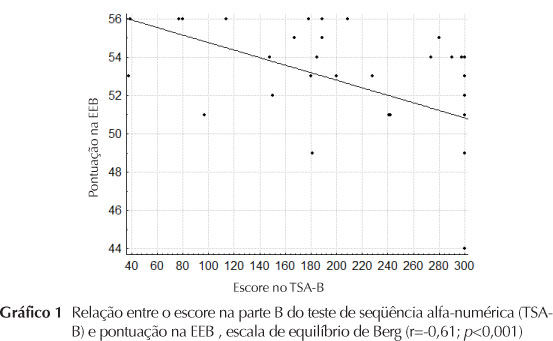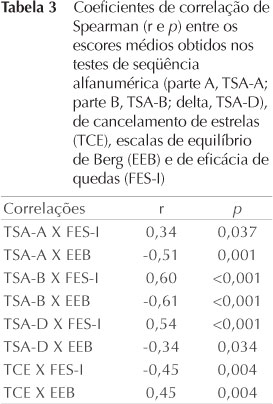The aim of this study was to investigate whether spatial perception and executive function deficits might have a relationship with functional balance in low-educational status elderly. Thirty-eight volunteers (mean aged 69.1±6.8 years), having one to six years of formal education, were assessed by the following tests: part A of the trail making test (TMT-A), for visual scanning ability, and cognitive processing sequencing and speed); part B of the TMT (TMT-B), that assesses mental flexibility and working memory); delta TMT (TMT-D), that assesses executive function; the star cancellation test (SCT), that evaluates spatial perception; Berg balance scale (BBS) and the Falls Efficacy Scale - International (FES-I), both used in the assessment of balance and falls. Correlations were sought for by means of the Spearman test and the significance level was set at 0.05. Significant, strong correlations were found between the balance scales (BBS and FES-I) and TMT-B (r=-0.61 and r=0.65, respectively); and moderate correlations between BBS and TMT-A (r=-0.51), and between FES-I and TMT-D (r=0.55). Significant correlations between the balance scales (BBS and FES-I) and the SCT were also found (r=0.45 and r=-0.45, respectively). Executive function and spatial perception showed relationship with balance and fear of falling in elderly with a low educational level. The better the executive function and spatial perception, the better balance tends to be and the lower the trend to fear of falling.
Aging; Cognition; Postural balance; Visual perception





